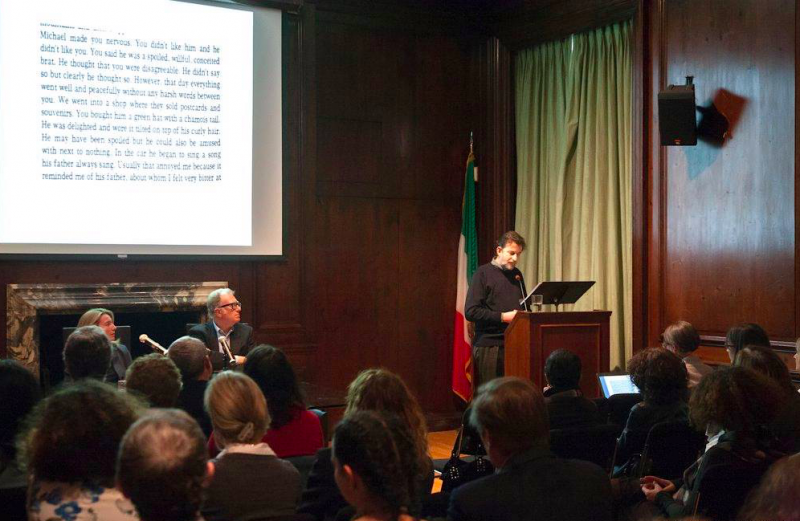Remembering Natalia Ginzburg at the Italian Cultural Institute
Last week, the Italian Cultural Institute in New York opened its doors to a celebration of the best of Italian Literature, remembering, this time, one of its major representatives, Natalia Ginzburg. The event was also an opportunity to commemorate the centenary of her birth.
The event was a bit different than usual, its guest of honor was the Italian actor/director Nanni Moretti who, in a solemn and evocative tone, has seasoned the evening with readings taken from Caro Michele, Ginzburg's epistolary novel dating back to 1973.
Nanni Moretti, extremely focused on his reading, seemed extremely taken by an overall familiar feel that was captured in his latest film, Mia Madre, a film centered on the relationship between mother-son and family.
After a brief introduction by the Institute's Attache for Cultural Affairs - Language and Literature Donatella Baldini, where she described the writer's awareness for the social dimension of language and how language is an effective tool to create and mold social relations, the evening continued with speeches by two other guests: Stefania Lucamante, Ordinary Professor of Italian and Comparative Literature at the Catholic University of America in Washington DC, and Valerio Magrelli, poet and Professor of French Literature and the University of Cassino.
Stefania Lucamante's topic of discussion was the delineation of Natalia Ginzburg within the society of her time and how society deeply influenced her writing.
Born in Palermo, but raised both in Turin and Rome during the years of the war, Ginzburg had to face complex and difficult times that didn't, however, affect the thematic, stylistic and intellectual continuity of her writing.
Family life was an incisive part of her approach, therefore Professor Lucamante also mentioned the passion that sprang from family events or relationships and how the writer used them to shape the plots of her stories.
Professor Magrelli also analyzed the concept of family and how the family context inspired the title of one of her most famous novels (Lessico Famigliare, 1963) but also her whole life.
Born in a large family, the daughter of a famous scientist, (here a parallelism with Italo Calvino is inevitable) Ginzburg, who has been considered by some a Naïf writer, was always been able to use her “literary intelligence” to compose extraordinary novels, creating energetic and peculiar characters who made her unique.
The evening ended with one last reading by Nanni Moretti from La mia psicoanalisi. It was the perfect ending to a very intense gathering.








































i-Italy
Facebook
Google+
This work may not be reproduced, in whole or in part, without prior written permission.
Questo lavoro non può essere riprodotto, in tutto o in parte, senza permesso scritto.